
Gender Mender: How WFH is demolishing gender roles
Working from home blurs the line between working spouses and homemakers. From filmmakers Nitesh and Ashwiny Iyer Tiwari to Clovia co-founders Pankaj Vermani and Neha Kant, meet seven power couples who say it has helped make marriage more equal
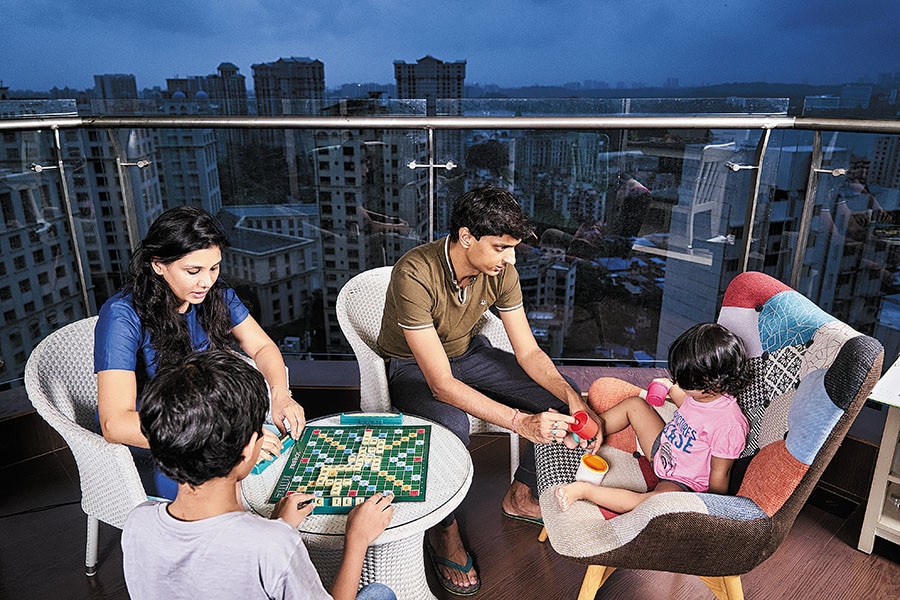 Rahul Garg, principal, Kalaari Capital; Rupal Agarwal, director and head of Asia, Equity Quant Research, AllianceBernstein
Rahul Garg, principal, Kalaari Capital; Rupal Agarwal, director and head of Asia, Equity Quant Research, AllianceBernsteinMarried for 10 years, have a seven-year-old son and two-year-old daughter
“Both of us are from IIT, ambitious, and busy. The only point of friction was how can my career be more important than hers?” Rahul Garg
Image: Aalok Soni
It was turning out to be a winter of discontent for Rupal Agarwal. Soon after getting married in February 2010, the investment banker from Lehman Brothers moved from Mumbai to London to join her husband, Rahul Garg, in the same organisation, which is now owned by Barclays. (Barclays had bought Lehman’s core business in September 2008, days after it filed for bankruptcy). Though the young couple began their day early, Rupal had a head start: Getting up early, making breakfast and packing lunch. The duo would then leave for the office, and be back late in the evening. For Rupal, the work continued at home. With no house help, she had to cook, clean the house, finish pending chores, and hit the sack on time to get up early next day to make breakfast, and rush to office.
The routine continued. Nothing changed a bit. Neither Rahul or his preoccupation with office work, nor the mostly biting weather of London. After a few weeks, Rupal put her foot down. “It was taking a toll on me. I could not manage both: Work at home after a grinding day at office,” she recalls. After a few months, the couple relocated to India.
The location changed, but the routine and roles still largely remained the same. Over the next few years, Rahul dabbled in entrepreneurship; he co-founded ethnic fashion and handicrafts ecommerce platform Artisangilt in 2012, exited after two years, was CEO at online gifting company IGP till 2017, till he joined Kalaari Capital. Rupal’s career, too, had taken off. She became vice president at Japanese brokerage company Nomura, and then director and head of Asia Equity Quant Research at AllianceBernstein. On the personal front, Rupal had become a mother of two kids. From household chores, the focus now shifted to the boy and the girl: Their food, school, life, routine.
One thing, though, remained the same: Getting up early. “Even if I slept at 1 at night, I had to wake up early for the kids,” she says. Ten years into marriage, there has been only one persistent point of friction between the couple. In spite of both being equally educated, from IIT Bombay, equally ambitious, equally flourishing in high-pressure jobs—and equals as parents—Rahul’s role at home was almost negligible. “How come his career is more important than mine” was a sentence, and an argument, that haunted both.
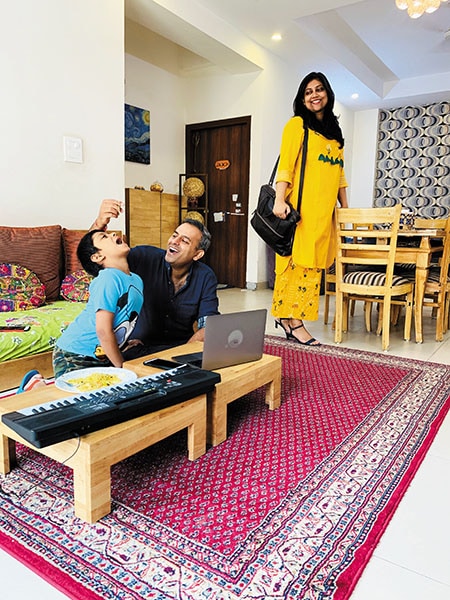 Pankaj Vermani and Neha Kant, co-founders, Clovia
Pankaj Vermani and Neha Kant, co-founders, CloviaMarried for 15 years, have a six-year-old son
“For the last three months, I have been totally sucked into the new business and Pankaj has been taking care of the kid, his work and household chores.” Neha Kant
Image: Abhishek Singla
Cut to July 2020, Mumbai. Over 100 days of work from home—and with house helps still staying away—Rahul is a transformed man. From mopping the floor to doing the dishes, from cooking to chopping vegetables, making evening tea and putting the kids to bed, the investment banker has donned a new avatar. “I have become an inspiration among my friends,” he says laughing. “It’s a 360 degree turn. Now I am sharing the load.”
Though the pandemic triggered a behaviourial change, Rahul doesn’t make any excuse for previously staying dormant on the domestic front. “I was immersed in work, used to travel extensively, but I still could have done my bit,” he rues. One thing, he stresses, he would change from his past if he could, would be his role at home. “I should have been there for her, and the kids.” There is a realisation, there is transformation and there is an eagerness to go the extra mile to make up for the past. “Now she doesn’t have to cut down on her sleep,” he says with a smile.
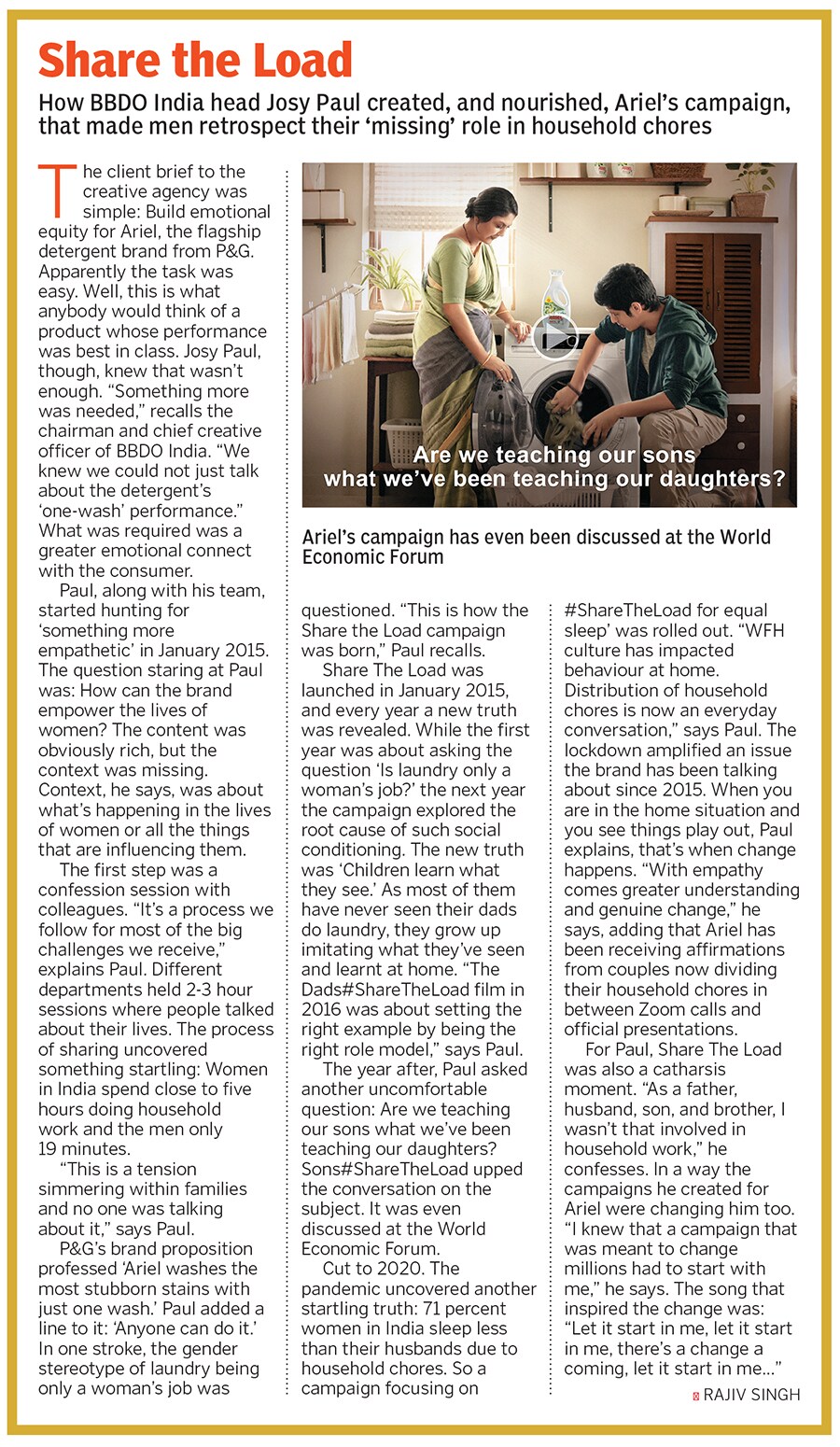
Rupal may still be among the luckier ones. Over 71 percent women in India sleep less than their husbands due to household chores, contends Josy Paul, chairman and chief creative officer of creative agency BBDO India. Paul has rolled out a campaign—#ShareTheLoad for equal sleep—this year, which is an extension of the ‘Share The Load’ campaign which he launched for Ariel in 2015. The laundry detergent brand from P&G has been championing the cause of gender equality, and sharing the load, at home. (See box)
Meanwhile in Gurugram, Pankaj Vermani has had sleepless days and nights over the last three months. Reason: Neha Kant, his wife and co-founder of lingerie brand Clovia, was sucked into the new business opportunity that emerged after the lockdown: Personal protection equipment and masks. Working over 16 hours a day, Neha couldn’t devote time to her six-year-old son, and household work. “For three months I don’t know what time my child slept or what he ate,” she recounts. “I couldn’t take out time for them.” Her time was spent on phone calls and Zoom calls.
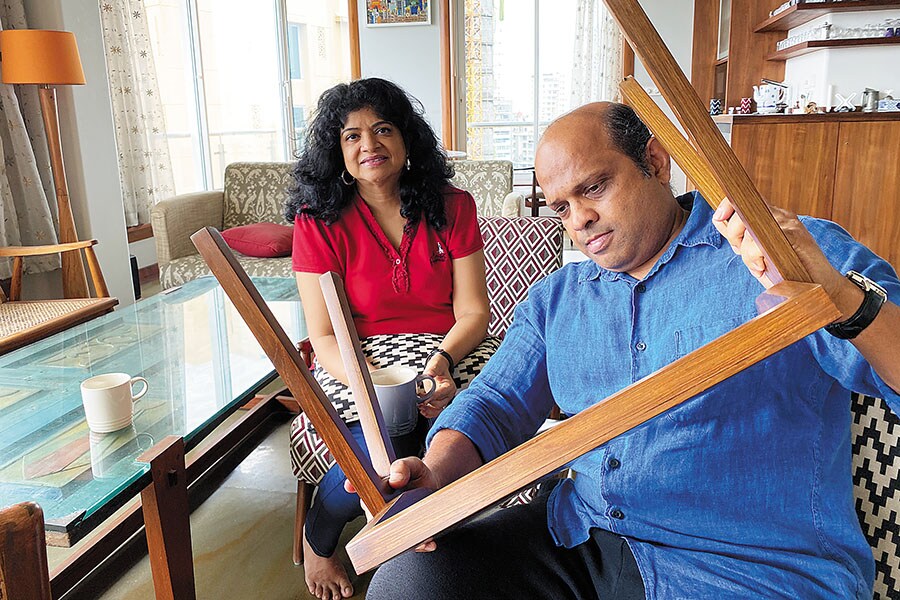 Agnello Dias, creative chairman, Dentsu Aegis Network, and co-founder, Taproot Dentsu; Nandini Dias, CEO (India), Lodestar UM
Agnello Dias, creative chairman, Dentsu Aegis Network, and co-founder, Taproot Dentsu; Nandini Dias, CEO (India), Lodestar UMMarried for 27 years; have two kids
“It’s not macho-cool anymore to not be aware of where things are kept in the kitchen... the spectrum of masculinity has broadened considerably.” Agnello Dias
Image: Cohaan Dias
With no help at home, Pankaj was coping with something he was not used to: Managing his son, and house. “He was a mama’s boy. I was at a loss. I didn’t know what to do.” On the second day of the lockdown, when his son asked for lunch at 3.30 pm, Pankaj felt terrible, and guilty. He made food for the child, and set an alarm on his mobile and watch that would alert him about his son’s meal times: Breakfast, lunch, snacks, and dinner. Apart from playing stay-at-home dad to his son, and managing his work at Clovia, Pankaj added more heft to his new role: Laundry and dusting.
There was something more that Pankaj was doing; unwittingly breaking the gender mould that he has grown up with. Coming from a middle-class family in Uttar Pradesh—and much like any part of the country—the roles at home were always sharply delineated: The man was the breadwinner, the woman was the homemaker and the kitchen was her domain.
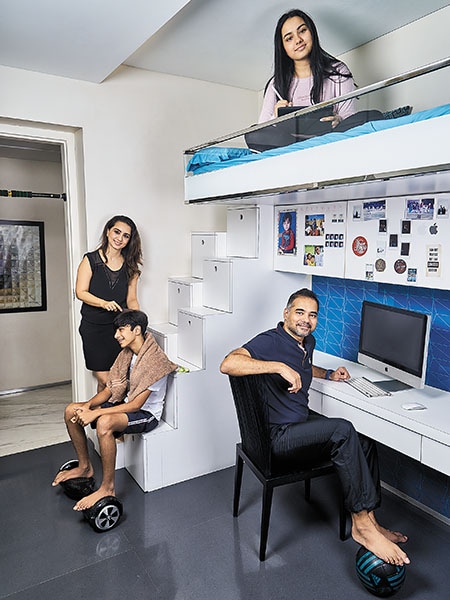 Rajesh Sehgal, managing partner, Equanimity Investments Shilpa Sehgal, partner, Equanimity Investments
Rajesh Sehgal, managing partner, Equanimity Investments Shilpa Sehgal, partner, Equanimity InvestmentsMarried for 19 years, have two teenagers, a 17-year-old daughter and 14-year-old son
“Parents should play out how they expect kids to behave. That’s how they learn. It (gender equality) starts at home.” Rajesh Sehgal
Image: Aalok Soni
In fact, till 2015, the picture remained the same. A Nielsen India study on Indian households conducted for Ariel found that while over two-thirds of women felt there existed inequality at home, men believed laundry was a woman’s job. More, 70 percent of married women spent more time on household work than their husbands; and 85 percent of working women felt they had two jobs, one at work and another at home.
Enter ‘Airtel Boss’ in 2015. The commercial made for the telecom major had a woman who’s her husband’s boss in the office. But, back home, the same ‘boss’ ended up cooking dinner for her husband. The stereotype didn’t go down well with many.
Agnello Dias, the brain behind the commercial, contends that the debate the advertisement caused was unintentional. The more interesting part, underlines the creative chairman of Dentsu Aegis Network, and co-founder of Taproot Dentsu, was not that the woman was shown as a boss at work, but that her husband reported to her. Equality, he maintains, stems from true freedom for both genders to be able to do exactly as they wish and not be compelled to do it by societal expectation. “If one feels like playing multiple roles, one should be allowed to do that without having to choose one over the other.”
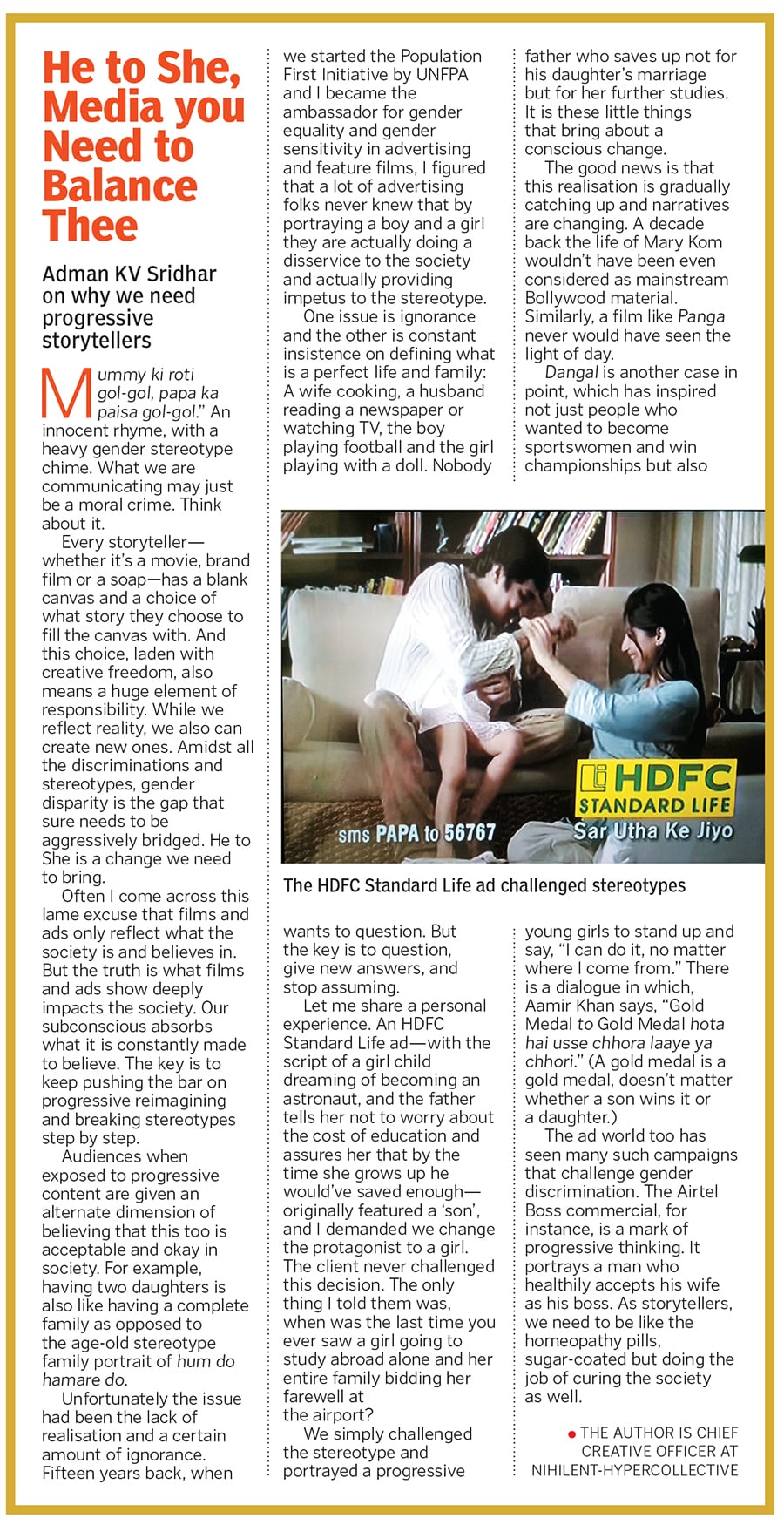
Dias, for his part, has been playing multiple roles, and not just during the lockdown months. From cooking to cleaning to everything at home, it’s a shared workload with his wife and two kids. “It’s not macho-cool anymore to not be aware of where things are kept in the kitchen,” he says. The spectrum of masculinity, he lets on, has broadened considerably, not only in size but also in colour, shape and texture. The head of the family is no longer defined only by his alpha male warrior ability to go out and fight the big bad world in order to fend for his family and put bread on the table, but also by his sensitiveness, understanding and appreciation of what’s going on inside the house. The celebrated adman, though, confesses that his wife Nandini ends up doing more. “I tend to get bored or lazy and goof off many times.”
Nandini Dias, CEO (India), at Lodestar UM, asserts that tasks, at home and outside, must be democratised. Commenting on gender equality at home, Nandini reckons that the frame of reference is far more emotional. In India, she points out, often the marriage takes place as a transaction, and emotional involvement is only through the children. People not genuinely involved with each other don’t particularly care if things are equal or not. “Many times it is not that the individual is a mean or bad human being. It is just that they don’t care enough,” she adds.
(This story appears in the 30 November, -0001 issue of Forbes India. To visit our Archives, click here.)




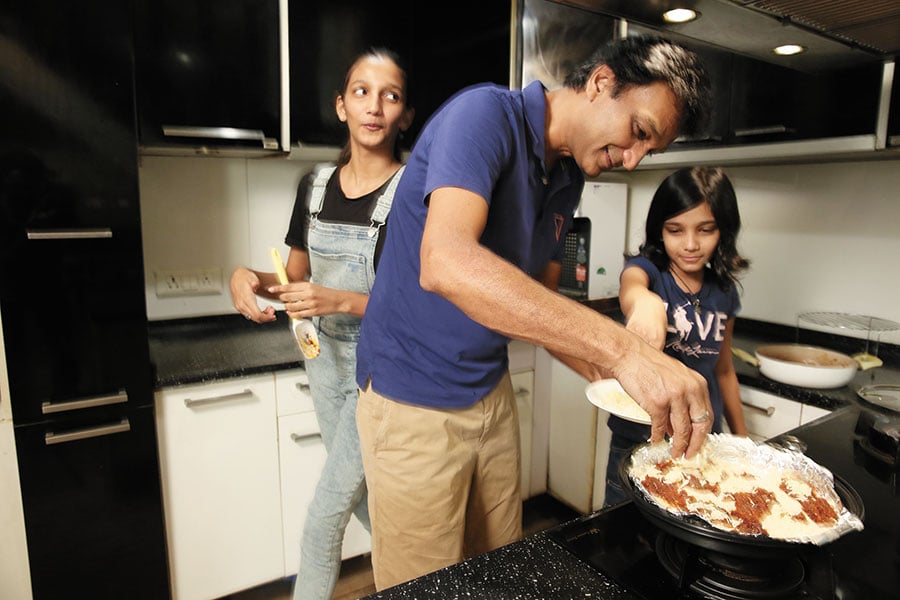 Sanjeev Kumar, partner, L&L Partners
Sanjeev Kumar, partner, L&L Partners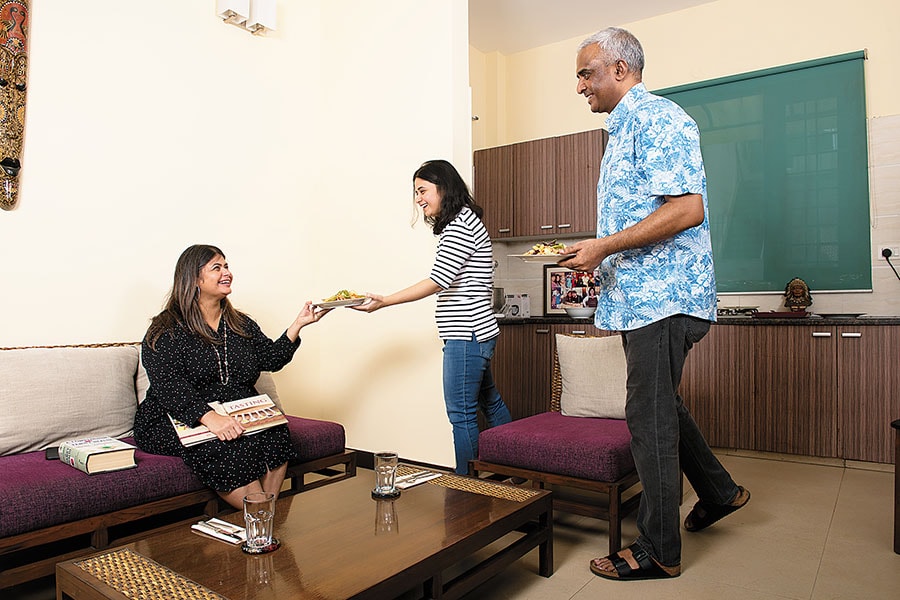 Bakshish Dean, chef and restaurateur; Rupali Dean, food and travel writer
Bakshish Dean, chef and restaurateur; Rupali Dean, food and travel writer 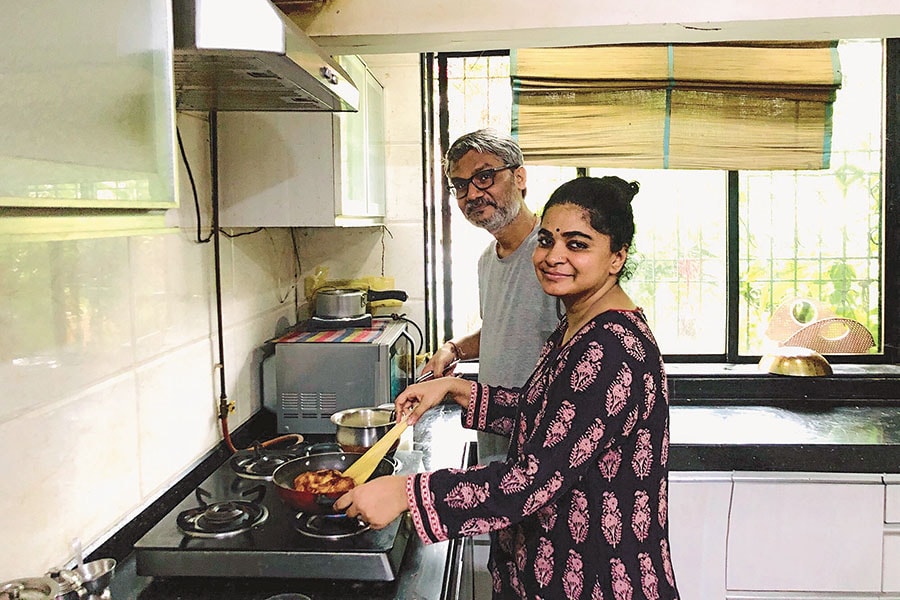 Nitesh Tiwari, filmmaker, screenwriter and Ashwiny Iyer Tiwari, filmmaker, writer
Nitesh Tiwari, filmmaker, screenwriter and Ashwiny Iyer Tiwari, filmmaker, writer



